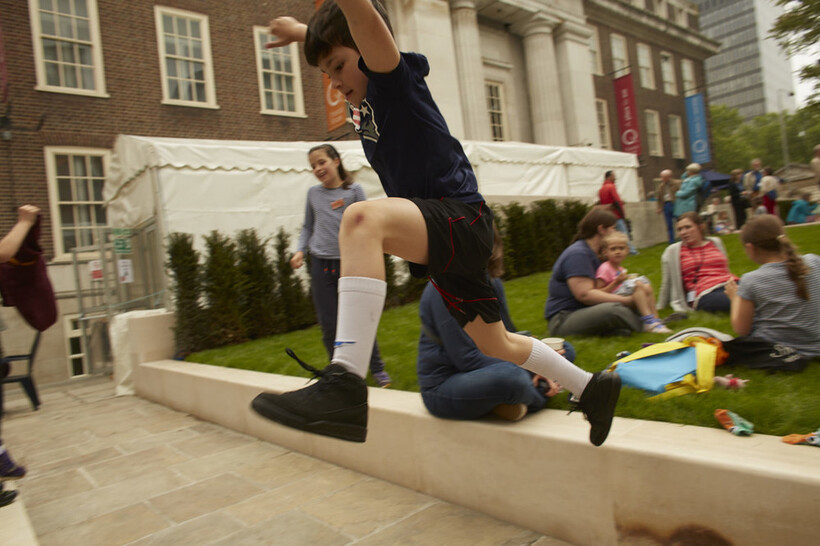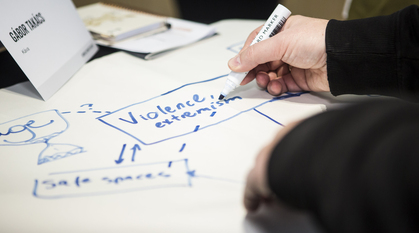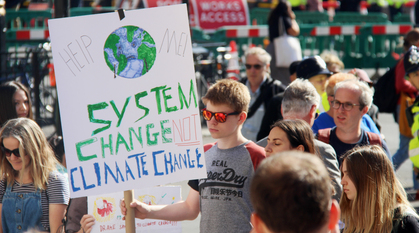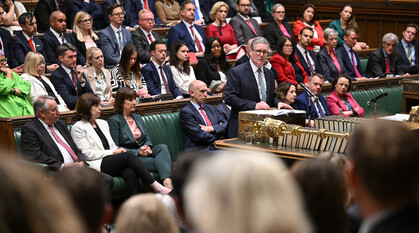Quaker communities – loving, inclusive and all-age?
After hearing the call to examine diversity amongst Quakers in Britain, Juliet Prager explores the next steps.

In August, Yearly Meeting, the annual gathering of British Quakers, gave all Quakers in Britain an exciting challenge – for our meetings to be more diverse. Now I'm looking for suggestions on just how we can do that.
Following a three-year arc of living out our faith in the world, Yearly Meeting issued the following minute on diversity:
"We have heard the call to examine our own diversity, particularly in our committee and organisational structure, locally and nationally. Diversity has several key dimensions and more may emerge in the future. We ask Meeting for Sufferings to look at how we can remove barriers and actively seek wider participation in the full life of our meetings, paying particular attention to race and age diversity and to keep Yearly Meeting informed in their annual report."
Minute 38: Living out our faith in the world: working with others to make a difference
Meeting for Sufferings, the national representative decision-making body of British Quakers, will begin working on this in early October. As its secretary, I'll be helping Sufferings to plan what happens next.
Our faith in the future
We already know that this is a live issue. Inevitably, Quaker meetings are responding to changes in the world around us, as we experience economic inequality, changing demographics and new patterns of work.
Quaker meetings – and their local communities – are all different. We'll need to find ways to explore what 'diversity' means, and we'll probably find different types of diversity!
Some Friends have already been considering inclusion, and doing practical things. One meeting has a 'sliding scale' for its annual weekend away, so that those who are better-off pay more than students or those on low incomes. Another is experimenting with new ways of worship. Young Quaker groups organise meetings for worship at times that suit them.
An ongoing journey
We're not at the start of this journey. In 1986, the Quaker Women's Group gave the Swarthmore Lecture. The experiences that some Quaker feminists shared in Bringing the invisible into the Light were not always comfortable but helped to shift perceptions and practice.
In the 1990s there was a 'Joint Working Group on Racism in the life of BYM'. It helped Quakers in Britain to explore racism and published useful materials.
In 1998, Young Friends General Meeting reflected on commitment and belonging in another Swarthmore Lecture.
In 2009, Britain Yearly Meeting committed to recognising and celebrating the equality of same-sex relationships in marriage.
Drawing on contributions from Quakers around Britain in 2015, Our faith in the future tells us that we want our meetings to be loving, inclusive and all-age.
BYM has offered programmes for children and young people for decades, as well as financial and practical support to Young Friends General Meeting. Recently, we've started to focus on young adults, particularly through Quaker Life's Engaging Young Adult Quakers project.
The road ahead
All of this continues to be a challenge and the road ahead will probably have unexpected turns. But many of us are excited about new possibilities to recognise God in each person, make the Quaker way open to more people, and even grow our Quaker meetings.
I invite you to share your ideas about how Quakers can explore these issues, and encourage others to do so. We'll need to learn from others, find allies and discover new tools. Do you know other organisations that have been through similar changes? What tools can we use? Whose skills and experience can we draw on? You can send suggestions and ideas to Meeting for Sufferings at: sufferings@quaker.org.uk.


